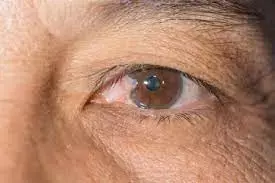- Home
- Medical news & Guidelines
- Anesthesiology
- Cardiology and CTVS
- Critical Care
- Dentistry
- Dermatology
- Diabetes and Endocrinology
- ENT
- Gastroenterology
- Medicine
- Nephrology
- Neurology
- Obstretics-Gynaecology
- Oncology
- Ophthalmology
- Orthopaedics
- Pediatrics-Neonatology
- Psychiatry
- Pulmonology
- Radiology
- Surgery
- Urology
- Laboratory Medicine
- Diet
- Nursing
- Paramedical
- Physiotherapy
- Health news
- Fact Check
- Bone Health Fact Check
- Brain Health Fact Check
- Cancer Related Fact Check
- Child Care Fact Check
- Dental and oral health fact check
- Diabetes and metabolic health fact check
- Diet and Nutrition Fact Check
- Eye and ENT Care Fact Check
- Fitness fact check
- Gut health fact check
- Heart health fact check
- Kidney health fact check
- Medical education fact check
- Men's health fact check
- Respiratory fact check
- Skin and hair care fact check
- Vaccine and Immunization fact check
- Women's health fact check
- AYUSH
- State News
- Andaman and Nicobar Islands
- Andhra Pradesh
- Arunachal Pradesh
- Assam
- Bihar
- Chandigarh
- Chattisgarh
- Dadra and Nagar Haveli
- Daman and Diu
- Delhi
- Goa
- Gujarat
- Haryana
- Himachal Pradesh
- Jammu & Kashmir
- Jharkhand
- Karnataka
- Kerala
- Ladakh
- Lakshadweep
- Madhya Pradesh
- Maharashtra
- Manipur
- Meghalaya
- Mizoram
- Nagaland
- Odisha
- Puducherry
- Punjab
- Rajasthan
- Sikkim
- Tamil Nadu
- Telangana
- Tripura
- Uttar Pradesh
- Uttrakhand
- West Bengal
- Medical Education
- Industry
Mindfulness-based stress reduction a potential approach in IOP management: Study

Mindfulness-based stress reduction (MBSR) may be a potential approach in IOP management, according to a recent study published in the American Journal of Ophthalmology.
A study was conducted to evaluate the effect of mindfulness-based stress reduction (MBSR) on intraocular pressure (IOP) in patients with ocular hypertension (OHT).
Parallel arm, single masked, randomized controlled trial. Sixty patients of ocular hypertension, with IOP >21 and <30 mmHg were recruited at a tertiary eye care centre in India. Thirty patients (group 1) underwent 6 weeks of one hour daily MBSR session while the other 30 patients (group 2) were waitlisted and kept on follow-up. Primary outcome was change in IOP (ΔIOP) after 6 weeks of MBSR. Secondary outcomes were effect on serum cortisol level, diurnal variation of IOP, vessel perfusion and vessel density on optical coherence tomography angiography (OCTA) and quality of life (QOL).
The results of the study are:
At 6 weeks a significant decrease in IOP was noted in group 1 (23.05 ±1.17 to 19.15±1.45 mmHg, p=0.001) compared to group 2 (22.55 ± 0.98mm Hg to 22.37 ± 1.07 mmHg, p=0.107). ΔIOP was significantly greater in group 1 (3.93±1.47) than group 2 (0.17±0.58; p 0.001). The diurnal fluctuation of IOP decreased in group 1 (4.87 ± 1.13 mm Hg to 2.73 ± 0.98 mmHg, p=0.001) as compared to group 2 (4.50 ± 0.86 mm Hg to 4.30 ± 0.83 mm Hg, p=0.227). Significant improvement in vessel perfusion, vessel density and flux index was noted on OCTA in group 1 as compared to group 2. Group 1 showed a significant decrease (p=<0.001) in serum cortisol level and an improved QOL (p=0.001).
Thus, MBSR was associated with a significant decrease in IOP and serum cortisol along with an improvement in optic nerve head perfusion and QOL. MBSR can be considered as a potential treatment option in the management of OHT.
Reference:
Effect of mindfulness-based stress reduction on IOP in patients with ocular hypertension: A randomized control trial by Tanuj Dada et al. published in the American Journal of Ophthalmology.
https://www.ajo.com/article/S0002-9394(22)00038-1/fulltext
Dr. Shravani Dali has completed her BDS from Pravara institute of medical sciences, loni. Following which she extensively worked in the healthcare sector for 2+ years. She has been actively involved in writing blogs in field of health and wellness. Currently she is pursuing her Masters of public health-health administration from Tata institute of social sciences. She can be contacted at editorial@medicaldialogues.in.
Dr Kamal Kant Kohli-MBBS, DTCD- a chest specialist with more than 30 years of practice and a flair for writing clinical articles, Dr Kamal Kant Kohli joined Medical Dialogues as a Chief Editor of Medical News. Besides writing articles, as an editor, he proofreads and verifies all the medical content published on Medical Dialogues including those coming from journals, studies,medical conferences,guidelines etc. Email: drkohli@medicaldialogues.in. Contact no. 011-43720751


